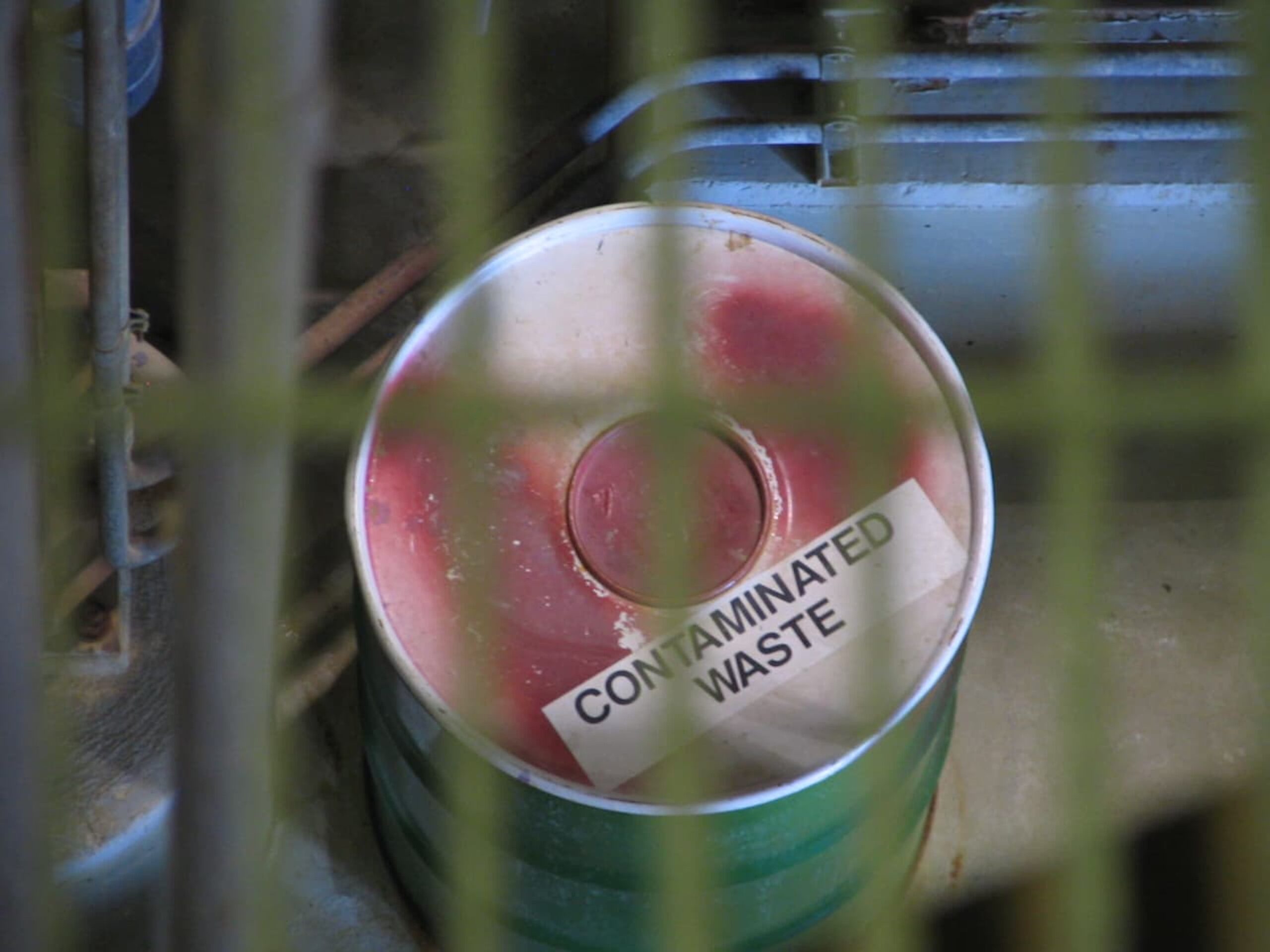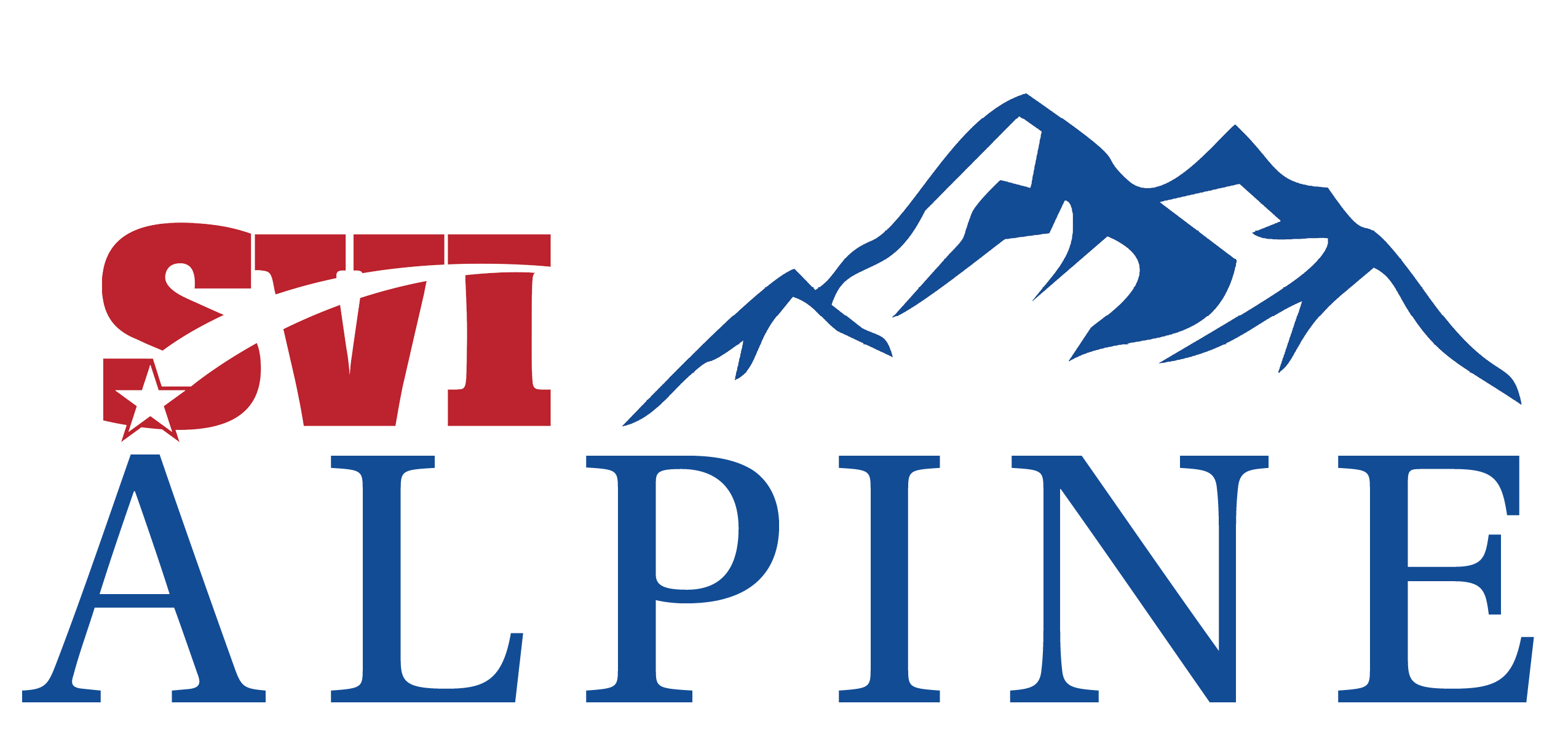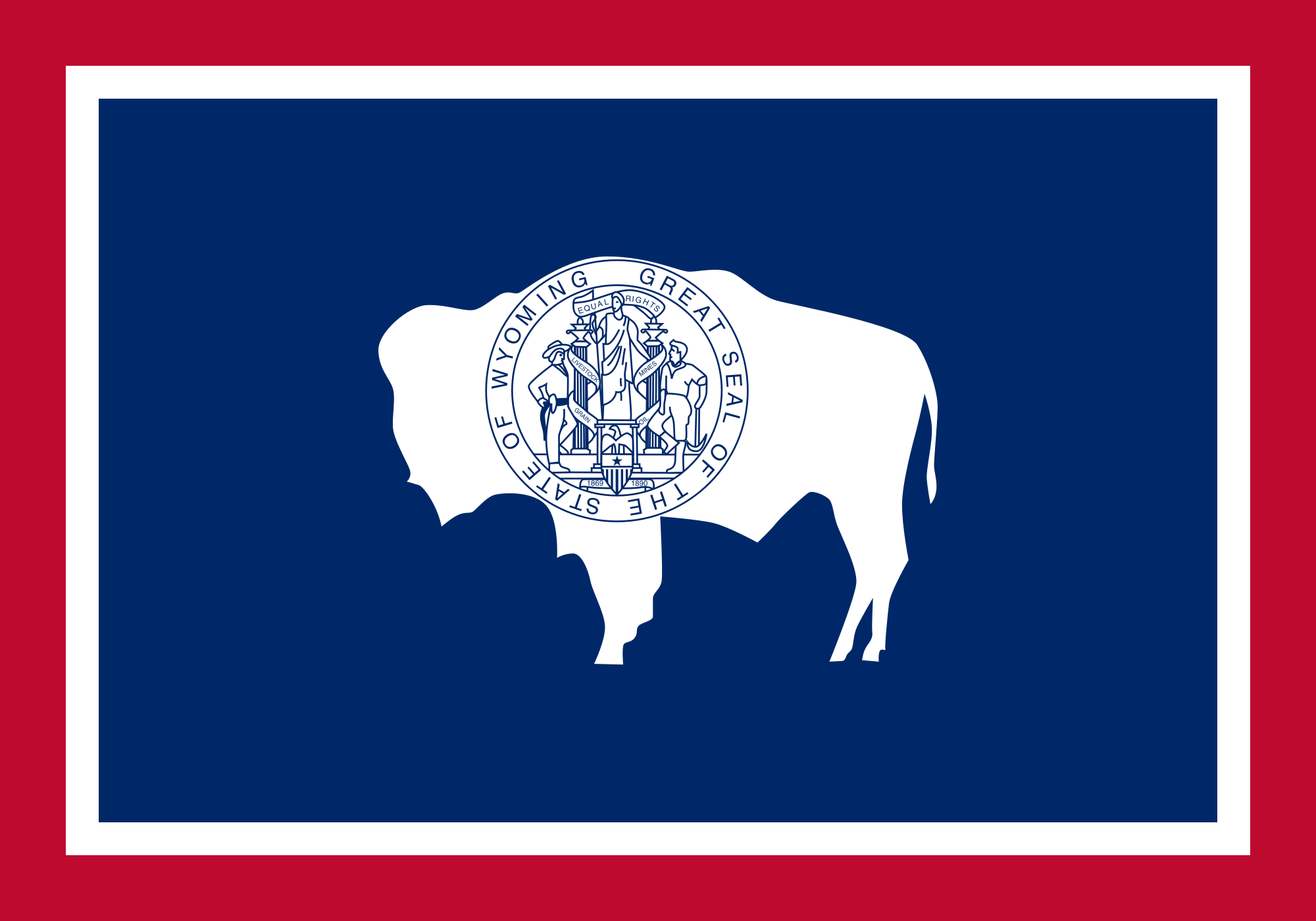Lawmakers advance measure opening Wyoming to possible nuclear fuel waste storage
By Wyoming News Exchange
October 9, 2024

A barrel of radioactive waste is visible through a catwalk at the Smith Ranch-Highland in-situ uranium mine in Wyoming. (Dustin Bleizeffer/WyoFile)
Despite public testimony against the measure, a legislative committee says it will introduce a bill before the full Legislature in January.
By Dustin Bleizeffer, WyoFile.com
With a handful of dissenting votes, a legislative panel has advanced a draft measure that proponents say merely provides the opportunity to discuss changing Wyoming statutes to enable temporary storage of high-level radioactive fuel waste from nuclear power plants.
The Minerals, Business and Economic Development Committee on Tuesday voted in favor of the draft bill Used nuclear fuel storage-amendments, which means the committee will sponsor the measure when the full Legislature convenes in January.
Committee Co-chairman Rep. Donald Burkhart Jr. (R-Rawlins), a longtime proponent of bringing nuclear fuel waste into the state, first rolled out the potential for new legislation regarding the matter in July, but neither he nor the committee shared a draft of the proposed legislation until weeks before the October meeting. The bill draft would amend past legislation mostly to align existing state statute with updated language regarding commercial nuclear waste storage with the U.S. Nuclear Regulatory Commission and the Department of Energy, Burkhart said.
“This is not a discussion of why or why not to have this,” Burkhart said at the onset of the discussion, adding that the committee took up the issue at the request of the Legislature’s Regulatory Reduction Task Force. “This is simply to amend the current statute.”
Burkhart was clear in July when he notified his fellow committee members of the pending proposal in draft form — which he shared with them, but not with the public — that nuclear storage held financial promise. The outlook for Wyoming’s fossil fuel-dependent budget is trending downward, and the state could reap more than $4 billion a year from nuclear waste storage, “just to let us keep it here in Wyoming,” he said then.
Also in July, Burkhart said he’d recently visited with a private landowner in Fremont County who, as in the past, is interested in selling land for such a storage facility. The land purchase would cost an estimated $2 million, Burkhart had said, and it would cost about $400 million to build the facility. “None of which would come from the state,” he said. “It would all come from private enterprise.”
Burkhart didn’t discuss such details on Tuesday and said “current statutes in Wyoming conflict with the [Nuclear Regulatory Commission] regulations, and we need to bring them in line.”
The desire to open Wyoming to the nation’s spent nuclear power plant fuel, however, is nothing new. Then-Gov. Mike Sullivan, after months of statewide debate, vetoed a measure in 1992 that would have opened the state to storing the waste. Though the Legislature has since updated statutes to accommodate spent nuclear fuel waste from nuclear power plants in the state, there remains a statute prohibiting a commercial high-level radioactive waste facility unless the federal government establishes a permanent repository.
The draft measure would not change that statute, yet opponents said it opens the door to an unpopular idea that Wyoming — as well as Texas, Nevada and other states — have rejected many times.
“We’re a bit alarmed at the speed at which this issue, in particular, has come about,” Wyoming Outdoor Council Executive Director Carl Fisher told the committee. “One of our concerns about this legislation is the lack of public engagement where we’re kind of looking to federal agencies to convene [discussion on] this, but [Wyoming is] not convening local public processes around impacts on communities.
“This means our communities, the tourism we’re reliant upon, our wildlife, our water, our wildlands, will be subjected to a toxic legacy that stems from a rush decision,” Fisher added.
Jill Morrison, who lobbied against similar measures in the past, noted that the draft bill requires only 30 days’ notice to the public before commencement of construction for such a facility.
“Dealing with high-level radioactive waste is not a simple matter,” Morrison told the committee. “And it’s been rejected by the state of Wyoming — by the public — three times. I think the people of this state [should] get an opportunity to weigh in on something like this.”
Earlier in the day, the committee heard testimony from Nuclear Regulatory Commission permitting officials who said they fully vet such facilities, including multiple opportunities for public input as well as a chance to protest a storage site proposal. Sen. Ed Cooper (R-Ten Sleep) said the NRC’s assurance should ensure a full environmental review and public input process.
“I think just saying that we absolutely don’t want used fuel storage in Wyoming — to just say that is very close-minded,” Cooper said. “I’m not sure that we do want it in Wyoming, and that’s not what this bill is doing. It’s simply allowing the discussion to move forward with the definitions meeting the NRC and the [Department of Energy] language.”
Former Senate President Eli Bebout, a longtime proponent of storing spent nuclear fuel waste in Wyoming, also spoke in favor of the measure “so we can really look at this thing in depth,” he said.
“Nuclear power has made a huge comeback,” said Bebout, who lives in Fremont County. “I’ve been a proponent of nuclear power for 25 or 30 years. It’s one of the last things left, I think, to really help this situation we have in America.”
Federal efforts to establish a permanent storage facility for high-level radioactive waste are currently led by the Department of Energy through its consent-based siting program — a process for communities to establish broad local support for hosting such a facility.
“There is no permanent repository and really no movement towards one,” NRC spokesman David McIntyre told WyoFile in July.
WyoFile is an independent nonprofit news organization focused on Wyoming people, places and policy.

